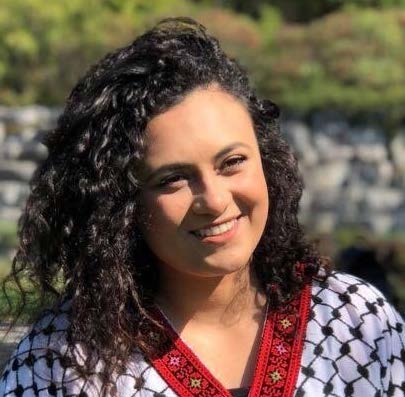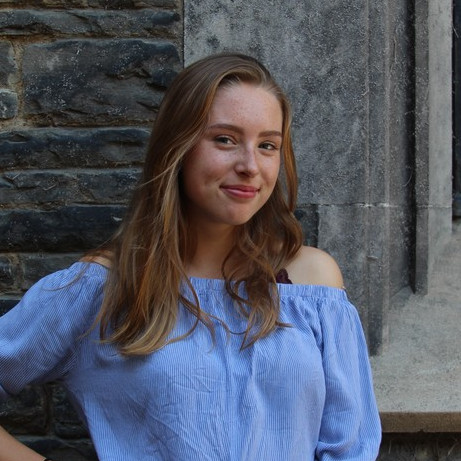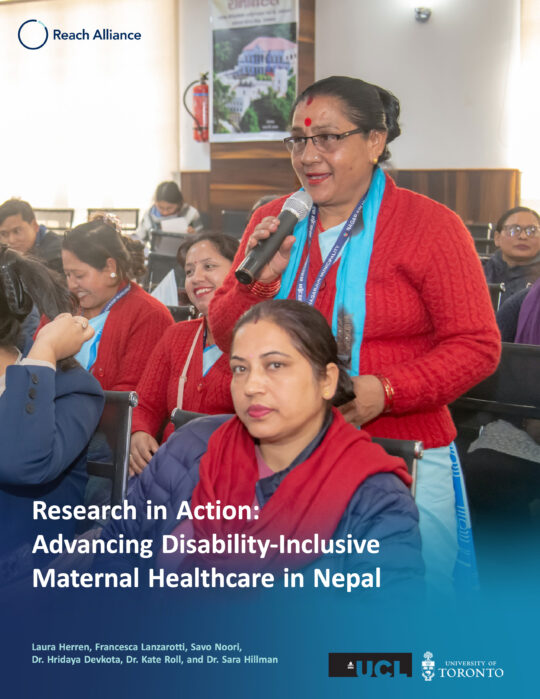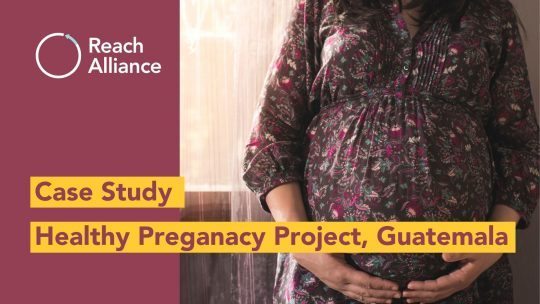Executive Summary
Maternal health disparities are an endemic problem in Guatemala but are particularly pronounced between Indigenous and non-Indigenous women because of inequalities in access to health care, especially in rural regions. In 2013 the maternal mortality rate among Indigenous women was more than twice that of non-Indigenous women, despite government efforts to strengthen rural health access through the rural Coverage Extension Program, implemented in 1996.
Beginning in 2014, the national government, in collaboration with international NGOs TulaSalud (Canada) and EHAS (Spain), introduced the Healthy Pregnancy Project (HPP), initially in the Alta Verapaz department (or region) and subsequently in San Marcos and most recently in Huehuetenango. It equips rural nurses with portable ultrasound kits that can be used in the country’s most difficult-to-reach areas. Nurses actively seek out Indigenous women and provide rudimentary maternal health care, including ultrasound diagnostic impressions. Scans are transmitted electronically to physicians who provide authoritative medical advice. The HPP identifies potentially risky cases and refers women to more sophisticated care. Nurses are trained centrally, and arrange community visits to ensure rural Indigenous women who are otherwise less likely to access maternal health care receive the health services that they require.
The project rolled out gradually across different departments (or administrative regions). Though initially an NGO-led project, it has been handed over to local governments to administer. Implementation by local governments is critical to ensuring local context and circumstances are reflected in the program. Its implementation of a common information technology platform has also ensured the program is able to reach communities that are hardest to reach.
The HPP has had a positive impact on maternal health outcomes in the regions where it has been implemented, specifically with notable reductions in maternal mortality rates among Indigenous women.
Context: Indigenous Maternal Health in Guatemala
Although reducing maternal mortality is a priority for many governments and is one of the main objectives of the United Nations’ Sustainable Development Goals (SDGs), endemic poverty and poor health infrastructure are significant obstacles to improved maternal health. In Guatemala, a history of political violence and civil war has made it particularly challenging to improve maternal health outcomes, especially for Indigenous women who are among the country’s hardest to reach.
Figure 1. Indigenous mother with a newborn. (Photo: Hector Medrano/USAID)
Nearly 40 per cent of the country’s population identify as Indigenous. Most Indigenous communities are concentrated in the rural northwest region. In Alta Verapaz, for example, over 93 per cent of the population is Indigenous. These communities experience higher rates of poverty than the general population, live farther away from healthcare providers than non-Indigenous communities, and thus are less likely to seek or receive care from a health professional.
Maternal mortality rates in Guatemala are high overall, and higher still among Indigenous women. In 2013 the maternal mortality rate (MMR) nationwide was 163 maternal deaths per 100,000 live births among Indigenous women, more than double the MMR of non-Indigenous women at 77. Indigenous women accounted for over two-thirds (68 per cent) of all maternal deaths that year.
The Healthy Pregnancy Project (HPP), a public-private partnership between the Guatemalan government and several international and local nongovernmental organizations (NGOs), was implemented in 2014 to address the problem of high maternal mortality, specifically of hard-to-reach Indigenous women living in remote areas. The HPP equips nurses with portable health kits and trains them to perform simple but critical diagnostic tests and ultrasound scans for pregnant women to detect potential complications before they develop into emergencies. Working with local and remote physicians, HPP nurses come from local communities and are coordinated centrally to maximize their geographical coverage.
In 2016, the maternal mortality rate among women in the HPP program in the San Marco department was 103, significantly lower than the overall MMR of 138 for all women in that department. The MMR in Alta Verapaz among women in the program was just 98, compared with 166 in the region overall. By targeting hard-to-reach Indigenous women, the HPP is succeeding in reducing maternal mortality. This report uncovers the key factors for the program’s success in the face of many challenges and barriers.
Barriers to Maternal Health in Guatemala
To reach the hardest to reach, the Healthy Pregnancy Project (HPP) has had to overcome five systemic barriers to improved maternal health among Indigenous women: political instability; the Indigenous community’s distrust of government and its healthcare system; geographical barriers; inequality in health services and outcomes; and inadequate culturally competent care for Indigenous communities.
Political Instability
The healthcare system reflects the volatile political state of the country’s federal government which experiences frequent turnover exacerbated by the absence of established political parties. Guatemala is a presidential republic with a popularly elected president limited to one four-year term. The legislature is a unicameral body that is also elected for a four-year term, with elections held concurrently with presidential elections. Because political parties are fluid and are continually created and dismantled there is little continuity among parties across elections.
The country is divided into 22 regional administrative departments, each headed by a governor who is appointed by the president. Municipalities within these departments are governed by popularly elected mayors. Similar to other multilevel and federal governance systems, instability at the national level affects the administration of programs at the subnational and community level. However, Guatemala is not a federation so regional departments have less authority and political power than most states or provinces in other federal countries.
Each new national government has a vastly different conception of how to run government programs, often undermining previously established healthcare programs. A noted example of such turnover was the fate of the Programa Extension de Cobertura (or PEC), which provided basic health care to rural areas between 1997 and 2014 but faced dramatically different levels of implementation across several government administrations.
There is no consensus to prioritize health care between the levels of government and between subsequent national governments so different governments often increase or decrease their expenditure on essential programs. Since 2006, the expenditure on health care as a percentage of GDP, for instance, has steadily declined from 6.6 per cent, reaching 5.7 per cent in 2018.1 Consequently, the country’s national healthcare system perpetually faces fiscal uncertainty. It is extremely difficult for long-term healthcare projects like the HPP to maintain stable political support and funding guarantees. One interviewee described Guatemala’s political challenges as the HPP’s “kiss of death” because every four years healthcare organizations must convince the health ministry to maintain public support for their programs. Many non�governmental organizations (NGOs) cannot survive in this fiscal context.
Lack of Trust in Government
Indigenous peoples have been mistreated by the colonial state and Guatemalan society. For centuries, they endured colonial rule that deprived them of their practices, teachings and access to basic human rights. During the long civil war (1960–1996), the military, which eventually formed the first peace-time government, committed many atrocities in Indigenous communities, including mass murders. This historical trauma created a lack of trust between Indigenous peoples and the government, including in the public healthcare system.
Figure 2. Map of Guatemala with San Marcos, Alta Verapaz and Huehuetenango highlighted — the three departments where the HPP is implemented.
Geographical Challenges
In 2014, 38.8 per cent of the Guatemalan population self-identified as Indigenous (Maya, Garifuna or Xinca), primarily in northwest Guatemala. For instance, in the northwest departments of Alta Verapaz and San Marcos, 93.5 per cent and 33 per cent of the populations are Indigenous. These departments are also the least urbanized. Alta Verapaz has the lowest urban population in all of the country, just 23.6 per cent, while only 29.7 per cent of the population in San Marcos live in urban areas. Because most services exist in urban areas only, the stark urban-rural divide makes it very difficult for rural Indigenous people to access healthcare facilities and personnel.
Because they lack access to healthcare facilities, Indigenous people are generally less likely to seek treatment from a medical doctor. Alta Verapaz has the third-lowest rate of healthcare access, with only 65.9 per cent of women having four antenatal care visits, the minimum number of visits suggested by the World Health Organization (WHO). Just 30 per cent of Indigenous women gave birth in healthcare facilities, compared to 71 per cent of non-Indigenous women.2
A 2014 survey showed that just 29.1 per cent of Indigenous people who were sick reported seeking care from a doctor, compared to 47.2 per cent of the non-Indigenous population. This gap was even larger between urban and rural access to healthcare facilities, with 52.8 per cent of urban residents seeking treatment from a doctor compared with just 27.2 per cent of rural residents. The lack of nearby doctors, as well as long travel or wait times, were cited as some of the reasons that Indigenous people did not seek medical consultations with a physician. Geographic barriers prevent Indigenous people from reaching the urban healthcare services they require.
Inequality in Services and Outcomes
The challenges posed by the urbanized nature of the country’s healthcare system are aggravated by socioeconomic inequalities that further hinder healthcare access for Indigenous Guatemalans. Currently, 79.2 per cent of the Indigenous population live in poverty compared to 46.6 percent of the non-Indigenous population. Over a third (39.8 per cent) lived in conditions of “extreme poverty” in 2014 while only 12.8 per cent of the non-Indigenous population did. Poorer Guatemalans are often unable to afford private care or to pay for the travel and time needed to access public health care. In 2014, 36.2 per cent of Indigenous people did not seek treatment from a physician because of financial difficulties.
Indigenous women also face poorer health outcomes relative to their non-Indigenous counterparts. In 2013, the country’s maternal mortality ratio (or MMR, the number of maternal deaths per 100,000 pregnancies) stood at 163 for Indigenous women and only 77 for non-Indigenous women. Indigenous women accounted for 68 per cent of maternal deaths in 2013, with the main causes of death being hemorrhage, infections and hypertensive disorders such as eclampsia and pre-eclampsia.
The healthcare gap between Indigenous and non-Indigenous communities has decreased in recent years, although it has not closed completely. For example, infant mortality in Indigenous communities fell by 50 per cent more than in non-Indigenous communities between 1999 and 2015. This was primarily a result of the implementation of basic healthcare coverage programs, such as the PEC, which delivered healthcare services to rural areas by contracting out care to NGOs. By 2012, this program provided care to 4.3 million people.3 Even so, ongoing injustices faced by the Indigenous population make the equitable and effective delivery of health services and care for rural Indigenous women difficult to achieve.
Lack of Culturally Competent Care
The lack of cultural competency in the country’s healthcare system results in poor experiences for and even mistreatment of Indigenous Guatemalans. Although the Maya people comprise most of the Indigenous population (making up 38.5 per cent of the population), Indigenous people are linguistically and culturally diverse, with 22 recognized languages spoken among the Maya alone. Approximately a quarter of the Mayan population is non-Spanish monolingual (i.e., not Spanish speaking), although this number has decreased since 2000.
Healthcare services are very rarely offered in any Indigenous languages, exacerbating the language barrier between healthcare professionals and Indigenous patients. Indigenous medicinal and cultural practices are also unknown to many healthcare professionals. Mayan women, for example, prefer to give birth standing. Unfortunately, few facilities or trained personnel are equipped to work with such birthing practices. The lack of cultural competency in healthcare facilities contributes to women’s hesitancy in accessing care.
How the Healthy Pregnancy Project Works
Overview
Multiple stakeholders launched the Healthy Pregnancy Project (HPP) in 2014, with an explicit objective to reduce high maternal mortality rates in rural Indigenous communities. The HPP is a collaboration between the national public health ministry of Guatemala (MSPAS, Ministerio de Salud Pública y Asistencia Social), regional health authorities (e.g., DASAV, the Dirección de Área de Salud de Alta Verapaz, the departmental health authority of Alta Verapaz), the Canadian-Guatemalan NGO TulaSalud and the Spanish NGO EHAS (Enlaco Hispano Americano de Salud, Spanish-American Health Link). The HPP was first implemented in the rural department of Alta Verapaz, and has since been rolled out to San Marcos and to the Huehuetenango department.
Nurses use portable, solar-powered ultrasound machines to wirelessly transmit images and other communications (such as nurses’ notes) to regional health centres where doctors diagnose possible complications that may require delivery in hospital, giving women time to arrange transportation before emergencies arise. Nurses carry the probes in a backpack, along with a laptop, foldable solar panel and blood- and urine-testing strips, which are used to detect common complications and disorders. With these kits, nurses test all the pregnant women in a particular remote community on regular visit days.
In 2018, the program was handed over to the public health departments of Alta Verapaz and San Marcos, which now provide almost all funding for the program. To date, the HPP has contributed to a more than 50 per cent reduction in maternal and neonatal mortality in women who receive care.4 Over 87 per cent of nurses’ ultrasound scan assessments were validated by physician reviews. The project has reached more than 21,000 pregnant women who required prenatal care in San Marcos and Alta Verapaz, but who did not otherwise have access to it.
Training
The nurses responsible for carrying the kits and administering tests in the HPP are selected from a pool of nurses who work in the public healthcare system. Nurses are recruited by the Canadian�Guatemalan NGO TulaSalud, one of the HPP’s implementation partners. TulaSalud assesses the candidates to ensure they have experience working with the communities that they would serve. Ideally, nurses are fluent in the Indigenous languages of the communities they visit.
Once nurses are enlisted in the program, they participate in a training course that teaches them how to use the portable ultrasounds. Their training takes place in accessible venues such as rural community health posts. The curriculum for training standards was developed collaboratively with the Guatemalan Cobán School of Nursing (ENEC, Escuela Nacional de Enfermería de Cobán) and the national ministry of health. TulaSalud coordinates with ENEC to certify the course and standards.
Health experts, such as gynecologists and other physician specialists, administer the training. These healthcare professionals are familiar with gynecological protocols, the diagnostic equipment in the kits and the healthcare system. All HPP nurses receive some initial training, though they continue to participate in monthly training sessions to ensure their techniques and equipment are up to date.
Figure 3. Contents of the portable kits provided to nurses in the HPP program.
Kit
The backpacks, in addition to solar-powered ultrasound machines and digital tablets, include diagnostic strips for blood-glucose and hemoglobin measurement; simple urine tests; and Hepatitis B, HIV, and syphilis screening.
Although the ultrasound scans are basic and don’t provide all of the information that would be recorded in hospital ultrasounds, they do provide the most relevant information, such as fetal position, to determine the best strategy for delivery. The ultrasound can also detect congenital diseases such as Down Syndrome and hydrocephaly, measure the amount of amniotic fluid, identify the number of fetuses and provide information about the baby’s weight and size, as well as the approximate delivery date.
Auxiliary Nurses
Auxiliary nurses — distinct from the professional nurses — also play a significant role in the HPP’s delivery. They complete an 18-month technical course and are staff members of the departmental health authority. Auxiliary nurses provide technical support to professional nurses and administer vaccinations, perform cervical exams, distribute food and assist in family planning. They can also substitute for professional nurses in some administrative tasks.
Since the termination of the Programa Extension de Cobertura (PEC) health program in 2014, auxiliary nurses are stationed in rural communities where they perform health surveillance activities and aid in coordinating emergency care. They also keep a count of the number of pregnant women in their communities by monitoring them through a community census. They report these numbers to regional health centres, where HPP nurses and nurse coordinators are stationed. Based on these results, the nurse coordinator, in collaboration with local health authorities, schedules community visits by HPP nurses. The schedule is communicated back to the auxiliary nurses who coordinate with the pregnant women to come to the local health post on the day of the HPP visit.
Nurses Travel to Communities
Nurse coordinators schedule community visit days on a monthly basis. Currently, each HPP kit is assigned to only one nurse. Because the kits are not shared, each nurse has a sense of responsibility for their kit’s condition and maintenance, which reduces the need for kit repairs and replacements. However, this limits the number of visits a nurse can perform in a month with a single kit (e.g., four to eight visits). To visit communities that are often remote and connected by poor infrastructure, most nurses must walk several hours by foot.
Figure 4. Based on the maternity censuses collected by auxiliary nurses, the houses of pregnant women are labelled on maps of communities, which are then used for planning purposes. (H = homes).
Check-Up
Upon their arrival at the local health post, women fill out a form asking for basic personal and medical information. The auxiliary nurses then record the women’s health vitals and basic information such as their weight and height. Once nurses are available, patients proceed through the urine and blood tests, followed by the ultrasound.
Figure 5. A nurse performing an ultrasound on a pregnant patient. (Photo: TulaSalud)
Although nurses are not permitted to make formal clinical diagnoses based on ultrasound scan results, they can give clinical impressions, or their judgment of whether a potential complication might develop. While these clinical impressions are not considered professional medical judgements, they are sufficient to achieve the HPP’s goal of advising women whether they may need hospital assistance during childbirth. These results are given to patients immediately after their scans.
The fetus’s sex is not assessed or communicated to patients during the check-up. We were told that this maintains trust in the program’s accuracy, since determination of sex is not always accurate. This practice also prevents sex-selective abortions, a concern in the region.
Quality Control and Reviews of Ultrasounds
After the nurse does the ultrasound, they transmit the results wirelessly to gynecologists who review the scans and the nurse’s clinical impressions to identify any potential errors. When possible, the gynecologists are based in the same regional department (i.e., they are local). Otherwise, physicians based in Spain and affiliated with the NGO EHAS (an implementing partner) review scans. If the physician identifies an error, the nurse is alerted by a cellphone call and the auxiliary nurse in the patient’s community updates the patient.
A monthly report on the scans is sent to the department’s nurse coordinator, who reviews the report and identifies any potential problems that might need to be addressed.
Responsibilities of HPP Actors
Nurses
Professional nurses are full-time staff of the public health system and provide additional services as part of their contract. Professional nurses are assigned an HPP kit and travel to communities to perform check-ups. They also provide clinical impressions based on ultrasound scan results.
Auxiliary nurses are also staff of the public health system but, unlike professional nurses, they cannot perform medical procedures. Auxiliary nurses assist in gathering the data to coordinate community visits, ensure pregnant women are aware of upcoming visits and coordinate any necessary follow-up appointments or updates on the clinical impression results. They also help coordinate travel to regional health centres if necessary.
Nurse coordinators are practising nurses who provide additional services as part of the HPP. They are responsible for scheduling community visits and coordinating the HPP nurses. To plan the community visits they consult with local mayors and other government officials, auxiliary nurses, professional nurses and local health authorities. Part of their planning role is to ensure kits are maintained and used properly and efficiently.
NGOs
The HPP was first conceived of by two NGOs — the Spanish NGO EHAS and Canada’s TulaSalud. Together, these NGOs approached the Guatemalan government to implement the project. Initially, the NGOs were responsible for financing all aspects of the project aside from the healthcare professionals’ salaries. However, a main objective of both NGOs is the eventual transfer of program administration from the NGOs to the government. Neither EHAS nor TulaSalud intends to administer the HPP indefinitely.
EHAS is the primary supplier of the HPP kits but it does not manufacture them. The kits are donated to the implementing regional department, which is responsible for maintaining most of their components. For some of the kits’ components, such as the ultrasound probes used in Alta Verapaz and San Marcos, there are no Guatemalan providers equipped to make repairs. Because departments are not allowed to award contracts to non-Guatemalan entities, EHAS is responsible for these components’ repairs, which are performed in the US.
EHAS, through its contacts in Spain, has coordinated many of the external funding sources for the HPP, including the initial grant from the Polytechnic University of Madrid (part of the EHAS consortium), the Spanish Cooperation Agency’s grant for the program’s expansion to San Marcos and the Autonomous Community of Madrid’s grant facilitating the recent expansion to the department of Huehuetenango.
TulaSalud is the main liaison between the NGO partners and the government in the HPP initiative. Because of the organization’s prior experience in the country and close contacts with local, regional, and national officials, TulaSalud manages the relationships between the partner NGOs and the government. It also has extensive experience in staffing and health personnel management stemming from its previous projects, notably, a remote nurse-training program it helped establish in Alta Verapaz (see box). TulaSalud coordinates staffing searches for the HPP, including for staff gynecologists and nurse coordinators.
Having operated in Guatemala for over 20 years, TulaSalud has a long history of collaborating with the Ministry of Health. Because of this experience, it is able to continuously collaborate with the ministry, despite perpetual instability in the government and in the healthcare system. Tula’s organizational nimbleness is an advantage as well. One person we spoke with credited its long-term success to its small organizational size: with its limited overhead, Tula can adapt and be flexible in situations where other large organizations like the UN have failed.
Departmental Health Authorities
The local departmental health authorities are responsible for all aspects of the HPP’s day-to-day operation and implementation within the regional department. From the outset, departments are responsible for staffing the program and paying the salaries of all professional and auxiliary nurses associated with it, as well as a kit technician’s salary. Nurses are paid by departments during their HPP training and taught by department-staffed teachers. HPP staff, such as the nurse coordinator and gynecologist, may be hired by TulaSalud and EHAS during the program’s early implementation stages but these positions are eventually transitioned to government responsibility and thus the department health authority.
Doctors
Quality control in the HPP is the responsibility of professional physicians who either locally or remotely review the ultrasound scans and the nurses’ clinical impressions. Wherever possible, physicians are physically based in the implementing department and are paid by the local health authorities for their activities (i.e., a part-time responsibility). However, in some cases this has been difficult to achieve, mainly because of a lack of financial incentives for physicians (i.e., poor compensation compared to private practice) and the public health system’s lack of financial resources. For example, the San Marcos and Huehuetenango departments currently do not have local gynecologists staffing their HPP programs. Scans are thus reviewed by an EHAS gynecologist based in Spain approximately three to four days after the scans are sent remotely.
Funders
In addition to funding from EHAS, TulaSalud and local departmental health authorities, the HPP is supported by private and institutional donors, including:
- Polytechnic University of Madrid
- USAID
- Spanish Cooperation Agency
- Inter-American Bank
- Autonomous Community of Madrid
- Individual donations.
The funder profile differs in each implementing department. For example, the HPP’s recent expansion to the Huehuetenango department was largely facilitated by a grant from the Autonomous Community of Madrid, while the San Marcos expansion was supported by a grant from the Spanish Cooperation Agency.
The HPP’s Impact
Since its inception, the Healthy Pregnancy Project (HPP) has reached over 21,000 Indigenous women from rural regions of Alta Verapaz and San Marcos, trained more than 50 nurses in the rural health network and contributed to a reduction in maternal and neonatal mortality by 35 per cent in these departments. A 2016 study of the program’s effectiveness found that the maternal mortality rate (MMR) among women tested under the HPP was significantly lower than the MMR in the general population. In San Marcos, women reached by the program had an MMR of 103, compared to 138 in the general population. The gap in Alta Verapaz was even larger: an MMR of 98 was recorded among women in the HPP program, compared to 166 in the rest of the department,5 due largely to the trained nurses who approach their work through a culturally competent lens.
Network of Local Nurses and Healthcare Workers
In collaboration with regional nursing schools, TulaSalud has trained over 50 nurses for the HPP, with more set to join the program as it expands to the department of Huehuetenango. Because these nurses come from the communities they serve, they are more attuned to local customs and adept at serving the specific needs of Indigenous people. This growing, culturally sensitive rural health network provides a foundation for bridging the rural-urban healthcare gap in the future.
Stability of NGO Funding and Relationships
TulaSalud’s extensive network of international partners is also instrumental to program success. It leverages its position as an established Canadian-Guatemalan NGO with secure funding to train health professionals in reaching the hardest-to-reach populations. As a subsidiary of the Canadian Tula Foundation, TulaSalud has benefitted from access to a continuous source of private funding.
Figure 6. Rural women wait to receive a check-up appointment. (Photo: TulaSalud)
Cultural Competency
The HPP incorporates some elements of the cultural norms and practices of the Indigenous people it seeks to reach, such as hiring nurses from local communities to administer the program in regional languages. These inclusive healthcare practices reflect an effort to respect historical and cultural traditions, create a sense of familiarity and foster community trust.
Figure 7. The KAWOK app shows promise. (Photo: TulaSalud)
The program’s efforts to reduce maternal mortality are supported by a software application called Kawok, an epidemiological surveillance app that TulaSalud developed, which records and tracks complications and diseases detected by HPP. The app’s extensive geographical penetration ensures its widespread use throughout rural regions.
Kawok is part of a broader effort by TulaSalud to take a data-first approach to overcome the challenges of data management in the country’s public health system. Without new technological innovations such as Kawok, data were manually input into computer systems in rural areas, leading to inaccuracies and inefficiencies in the healthcare system, as well as a loss of patient data.
Scaling Up the HPP
The long-term objective of the partnership between EHAS and TulaSalud is to scale up and integrate the Healthy Pregnancy Project (HPP) into the nation-wide government-administered health system. A key measure of success is strengthening the local public health system throughout Guatemala and strengthening the government’s capacity to deliver maternal health services and health interventions independently.
Both EHAS and TulaSalud believe that the HPP’s sustainability and scale-up are dependent on a smooth program “handover” to the government at the national level — the national MSPAS (the national public health ministry of Guatemala Ministerio de Salud Pública y Asistencia Social) would assume responsibility for all aspects of the HPP’s operations, from staff recruitment and training to equipment procurement and maintenance. The objective to hand over the program to the government is central to the HPP’s staged rollout strategy. The HPP is implemented and reinforced in a department first before it is transferred and scaled up to other departmental health authorities.
Since its introduction in Alta Verapaz in 2014 and its expansion to San Marcos and Huehuetenango later, the HPP has adhered to a scaling-up framework that is based on a model of portable maternal health intervention (e.g., the portable health kits) but informed by locally adaptive implementation strategies that reflect local circumstances.
Figure 8. Staged rollout and scale-up.
Department Selection
Selecting which department to deploy the HPP in depends on multiple factors, including existing networks between the implementing organizations and local health agencies, a high maternal mortality ratio and access to resources. For example, since TulaSalud is based in Alta Verapaz, it is familiar with the regional context. The decision to pilot the HPP there was primarily based on the existing relationship and trust that had been established between TulaSalud and the departmental health agency through TulaSalud’s prior projects there.
San Marcos was selected next primarily as a strategic funding opportunity. At the time that EHAS and TulaSalud were considering expanding the HPP to a new department, the Spanish Cooperation Agency was funding other health-related initiatives in San Marcos where there was also a high maternal mortality rate and a similar demographic profile to Alta Verapaz. With the insights gained from these departments, EHAS and TulaSalud were then prepared to implement the HPP in the more complex and challenging Huehuetenango department, which has one of the highest maternal mortality ratios in Guatemala (338 maternal deaths per 100,000 live births in 2016).6
Coordination and Implementation
TulaSalud and EHAS are in constant communication with departmental health authorities at all stages of the HPP’s implementation, from the departmental selection process at the outset to supporting the transfer of operations to the government. Prior to the HPP’s implementation in a new department, a letter of engagement between TulaSalud, EHAS and the departmental health authority outlines the program’s conditions and confirms the project’s expected duration and the expected date at which it is completely handed over to the government. This sets clear expectations and timelines for the HPP’s integration into the government-administered health system in the future.
Efficiency Core Replication
The HPP’s ease of expansion into new departments can be partially attributed to how efficiently its kit-centred intervention can be replicated in other areas — in other words, its replicable efficiency core. An efficiency core is an integral and replicable component of the project that can be implemented with slight modifications to suit local contexts.7 The HPP’s efficiency core is centred on its maternal health kits which are standardized and easily duplicated. Although the HPP is much more than just a portable maternal health kit, this easily replicable tool contributes to the program’s efficient scale�up into other departments.
Local Adaptation and Evolution
Of course, the replicable efficiency core must be adapted to the local context. For example, the local adoption of innovative software apps depends on local contexts and capacities such as software processing capability, familiarity with the software and user perception of new technologies. OpenMRS, the software through which ultrasounds are sent to doctors for verification, continues to be used in San Marcos but was replaced in Alta Verapaz because of problems with local technology adoption and the software’s maintenance.
There are many other examples of how the HPP initiative has evolved and adapted since it was first implemented in Alta Verapaz. For instance, the HPP kit switched from using laptop computers to tablets in the portable kits. The tablets are more lightweight and mobile, and they can be repaired locally and more cheaply, unlike the laptops that need to be repaired abroad. Some blood tests, including for HIV and syphilis, were removed from the HPP kit used in Huehuetenango after project evaluations there concluded very low incidence rates of some diseases.
Overall, these localized adaptations are relatively small adjustments to the replicable efficiency core. Though minor, they are nonetheless vital to the program’s success by striking a balance between local adaptability and scale-up replication. The HPP is not customized for each department, but it also is not a replication of the original implementation. Instead, it is flexible, adjusting its operation with each lesson learned and collaboration with the departmental health authority that will eventually take it on.
Barriers: Scale-Up and Reach
Despite the overall successes of the Healthy Pregnancy Project (HPP) in reaching rural pregnant women across Guatemala, some barriers remain to both scaling up the project as well as to extending its reach to those who are hard to reach. The HPP remains constrained by six main barriers.
High Government Turnover and Limited Funding
A high rate of government turnover at the national level and limited funding for the public health system make it difficult to get sustained commitment from the national public health ministry — Ministerio de Salud Pública y Asistencia Social (MSPAS). Considering the importance of effective coordination with government agencies to the HPP’s success and its handover efforts, continuous political disruptions and instability create higher barriers to national scale-up. These disruptions, coupled with limited financial support from the government, often require renegotiating agreements on operational expectations, timelines and scale-up processes.
Figure 9. Milestones in the HPP’s development and implementation.
Figure 10. A nurse performs an ultrasound check-up on a pregnant patient. (Photo: TulaSalud)
After the full integration into the public healthcare system, the HPP is intended to be funded through public sources. However, because of the lack of stable government funding, this remains unlikely. For example, TulaSalud and EHAS have continued to support some parts of the program after the initiative was handed over to local departments, which threatens the program’s sustainability to reach rural communities.
Competing Health Priorities
Proponents of scaling up the HPP argue, for instance, that reducing the incidence rate of maternal mortality (and thus increasing the number of “lives saved”) through the HPP reduces the demands on the health system. They argue that improvements in health outcomes in terms of the maternal mortality rate (MMR) improve population health. EHAS and TulaSalud have also argued, for example, that scaling up the HPP increases the program kits’ cost efficiency, and specifically the expensive ultrasound equipment, through economies of scale. They contend, therefore, that scaling up the HPP reduces per capita health cost and improves health outcomes.
Inefficient Data Collection and Limited Empirical Evidence
Despite arguments made by HPP proponents to support the program’s scale-up, empirical evidence to support the project’s impact remains unconvincing because of the inefficiencies of the data collection strategies employed in Guatemala — which include manually digitized patient records and paper records that are often lost. This limits EHAS’s and TulaSalud’s ability to pitch for a continued national scale-up and smooth national integration.
However, innovations in data collection, storage and sharing demonstrated by Tula Health’s Kawok app can improve the HPP’s success rate in reaching hard-to-reach populations in rural Guatemala. Centralizing patient information onto one platform, for instance, and increasing the ease with which nurses can record information, would allow nurse coordinators and local health authorities to better monitor maternal mortality in their jurisdictions. A centralized platform for HPP data could also facilitate epidemiological data sharing across departmental boundaries and thus track the program’s success, generate data for broader public health decisions and improve coordination between departments.
Shortage of Trained Healthcare Personnel and Medical Professionals’ Resistance
The HPP’s ability to reach pregnant rural women is also constrained by systemic staffing challenges. Guatemala has one of the lowest physician ratios in Latin America with only 0.9 doctors per 1,000 inhabitants. This rate is even lower in rural areas, given that approximately 80 per cent of doctors work in urban areas.8 These disparities typically result from the underfinanced and understaffed nature of the public healthcare system, with most doctors gravitating toward the more lucrative urban private sector.
The HPP operates primarily using professional nurses who cannot make medical diagnoses based on the basic ultrasound results. Medical diagnoses must be made by a professional gynecologist, who are scarce in rural areas. For example, as of fall 2021, TulaSalud has not been able to hire a gynecologist in San Marcos to diagnose HPP patients. Instead, a gynecologist based in Spain continues to remotely review HPP test results, which limits the program’s ability to reach remote rural women.
Some gynecologists express concern that the HPP could replace them and their services, even in urban centres. Others criticize the project as being too rudimentary because of the basic ultrasounds performed, and the information gathered from them. Critics see the HPP as basic and thus an inadequate replacement. In response, the program and TulaSalud stress how the HPP complements medical professionals rather than replaces them. EHAS and TulaSalud must continue to engage concerned medical care practitioners and reinforce the program’s ultimate goal of reducing maternal mortality by reiterating the program’s complementarity with the private care system.
Barriers to Project Localization
Equipment procurement and maintenance cannot be sourced from Guatemala. For example, EHAS continues to be responsible for the ultrasound probes in Alta Verapaz and San Marcos because they are imported from the USA and cannot be repaired locally (departments cannot legally award repair contracts to non-Guatemalan providers). Nonetheless, efforts to localize the purchase and maintenance of hardware continue in Huehuetenango through the introduction of new ultrasound probes and tablets, both of which can be repaired locally.
Limitations of Cultural Competency
Delivery of the HPP is based on a community-led approach, involving nurses from the regions that are served by it. According to one interviewee from TulaSalud, most auxiliary nurses typically speak the language of the region they serve, though in some cases interpreters are required. In general, the program succeeds in providing care in patients’ preferred languages. This is critical to trust building and cultural competency, especially in Indigenous communities, which have historically been marginalized.
However, in speaking with staff from both TulaSalud and EHAS, we learned that the HPP’s commitment to Indigenous cultural competency is secondary to its principal goal of reducing maternal mortality. One interviewee from EHAS noted that while cultural competency training is integrated in some departments, some departments have chosen to emphasize the medical aspects of the nurses’ training instead of cultural competency because program funding is scarce.
Although the HPP incorporates some aspects of cultural competency, it is an area for improvement. Given the massive disparities that Indigenous peoples face in the healthcare system, any program serving these communities must be more deliberate and intentional in incorporating cultural competency into its delivery to maximize its impact on the target community.
Government Handover
EHAS and TulaSalud’s final objective is the integration of the HPP into the nation-wide health system to strengthen local healthcare. This step is gradually introduced throughout the preceding steps of The HPP’s staged rollout and scale up. This is evident from the initial departmental selection stage where departmental health authorities are evaluated, to the letter of engagement and setting of expectations between the NGOs and such departmental health authorities. The final complete integration of project coordination and operations (including equipment procurement) into the public health system remains a gradual objective of the HPP’s successful scale-up in the long term.
Lessons Learned
In addition to its overall success in mitigating systemic barriers contributing to regional inequity, the Healthy Pregnancy Project (HPP) showcases important strategies that should be considered in other healthcare intervention contexts. Overall, its success in reaching difficult-to-reach populations relies on five general strategies, each of which provides an important lesson learned from this project.
These include the formation of strong interdependent NGO partnership networks; the establishment of a collaborative NGO-government partnership that reinforces local public health networks; a staged rollout that accommodates project evolution; a cultural and community-driven approach; and the effective use of telecommunications suited to local contexts.
NGO Partnership Networks
A strong NGO partnership network centred on one local partner is critical to the success of health interventions like the HPP. EHAS, seeking to broaden the use of its technology, identified TulaSalud as a strong regional partner thanks to its extensive familiarity with the local context, and pre-existing relationship with the departmental authorities. This allowed EHAS to overcome some of the barriers that come with implementing projects in a new region, such as difficulty gaining public sector approval and funding.
TulaSalud’s strong partnership with EHAS also allowed each NGO to play to its own strengths and expertise through a strategic division of labour, strengthening each aspect of the program. For example, TulaSalud’s expertise in healthcare governance allowed for a smoother program handover to the government, whereas EHAS’s technological expertise was crucial to the scale-up and implementation of the program’s technical components, such as the ultrasound probes. The importance of the TulaSalud-EHAS relationship to the HPP’s success demonstrates the need for strong local-international NGO alliances in implementing projects that depend on government support and familiarity with the local context.
NGO-Government Partnership
One of TulaSalud and EHAS’s key objectives for the HPP was to eventually transfer the program’s operational responsibilities to the government. They aimed to strengthen the public healthcare system by improving the departments’ capacities to provide quality care to rural areas. Thus, TulaSalud and EHAS made deliberate choices early in the design process to facilitate handover to the government, such as selecting easily procured equipment, and involving government partners in the program from the project’s inception. TulaSalud’s prior experience with transferring projects to government administration also meant it understood the nuances of the handover process. NGOs seeking to achieve similar goals should make conscious efforts to design their programs with the eventual handover in mind, establish close relationships with the government early in the process and become acquainted with local government regulations and structures.
In the long term, transferring programs to government control has both risks and benefits. There is no guarantee the government will continue supporting a project, especially in a volatile political environment like Guatemala’s. However, government administration facilitates a project’s scale-up, which can result in institutional change and help a project become more entrenched in the public care system.
Staged Rollout and Project Evolution
The HPP successfully scaled up its implementation from just one department to three, with plans to expand further to other departments, and even other countries. The HPP’s scale-up in Guatemala reflected its staged rollout strategy. Specifically, the program was not implemented in various departments simultaneously, but rolled out sequentially. The HPP leveraged its easily replicable efficiency core, but was also flexible in its implementation to reflect local contexts. Because of the country’s diverse geography, demographics and epidemiology, it was important for the HPP to remain nimble and agile to become integrated in a wide variety of contexts. NGOs should strive to strike a similar balance between widespread rollout and fine-tuning their project to the local context to ensure that it remains effective and appropriate.
Cultural Competency and Community-Driven Strategy
Cultural competency embedded within a community-led approach contributed to an efficient, impactful and sustainable healthcare intervention. The HPP utilized local staff to build trust and overcome barriers in reaching rural and Indigenous populations across Guatemala. Programs must consider culturally competent design when implementing programs targeting Indigenous and rural communities. That said, cultural competency should extend beyond language and personnel to be more systematically embedded in programs such as the HPP and other maternal health projects.
Telecommunications and Data Management
Telecommunications technology, like the cell phones used by the HPP nurses and cloud-based data-management applications like OpenMRS, are critical to addressing the data-management inefficiencies in the public healthcare system. A key factor for the HPP’s success was its strategic use of technology, such as implementing a telecommunications platform in the portable kits that leverages the availability of cellphones and wireless service in remote areas, in addition to introducing new software innovations for data gathering and information management.
Tech-based programs should seek to maintain a balance between user friendliness and innovation. One of the HPP’s priorities when developing software was user perception of the equipment, which lead to easy uptake in the local context. The HPP’s use of telecommunications and data-management technology allowed the program to avoid the inefficiencies evident in the public system. Especially in the context of the handover, it also pushed the primary care system toward more rigorous implementation of telecommunications and data management technology, even beyond the issue of maternal care. Thus, the HPP’s successful use of telecommunications and data management technology suggests that integrating technological advances within an independent program can be critical to overcoming existing inefficiencies in a public healthcare system and can contribute to advancing public healthcare operations as a whole.
Acknowledgments
This research was made possible through the Reach Alliance, a partnership between the University of Toronto’s Munk School of Global Affairs & Public Policy and the Mastercard Center for Inclusive Growth. Research was also funded by the Ralph and Roz Halbert Professorship of Innovation at the Munk School of Global Affairs & Public Policy. We express our gratitude and appreciation to those we met and interviewed. We are also grateful to support staff, including translators, who helped make our research possible.
This research was conducted at the University of Toronto, which is located on the traditional land of the Huron-Wendat, the Seneca and the Mississaugas of the Credit, a meeting place which is still home to many Indigenous people from across Turtle Island. We are grateful to have the opportunity to work on this land. Although our research focuses on Guatemala, which is home to many groups of Indigenous peoples like the Q’echi’, Pocomchi and Sipakapense, there can be many parallels drawn between the state-sponsored treatment of Indigenous peoples and the current cultural, socioeconomic and health status of Indigenous groups in both so-called Canada and Guatemala. We acknowledge that there remains far more work to be done to promote reconciliation with Indigenous peoples, and we hope that research like this, which aims to bridge the health gap between Indigenous and non-Indigenous communities, can be a meaningful step forward.
This research was vetted and received approval from the Ethics Review Board at the University of Toronto. Research was conducted remotely during the COVID-19 pandemic.
MASTERCARD CENTER FOR INCLUSIVE GROWTH
The Center for Inclusive Growth advances equitable and sustainable economic growth and financial inclusion around the world. The Center leverages the company’s core assets and competencies, including data insights, expertise, and technology, while administering the philanthropic Mastercard Impact Fund, to produce independent research, scale global programs, and empower a community of thinkers, leaders, and doers on the front lines of inclusive growth.
MUNK SCHOOL OF GLOBAL AFFAIRS & PUBLIC POLICY
The Munk School of Global Affairs & Public Policy at the University of Toronto brings together passionate researchers, experts, and students to address the needs of a rapidly changing world. Through innovative teaching, collaborative research, and robust public dialogue and debate, we are shaping the next generation of leaders to tackle our most pressing global and domestic challenges.








